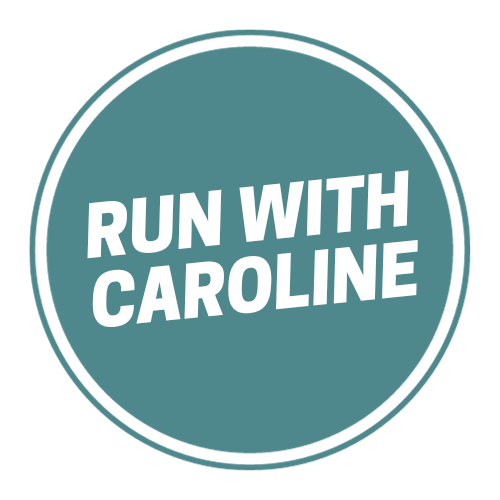It can be difficult to know what to eat before a run.
Eat too much and you are left with that heavy feeling when you run.
Eat too little and you risk feeling sluggish and tired.
Food is fuel but the type of food you eat before a run depends on a few factors, including the time at which you run, run duration and run intensity.
What you eat before a marathon, for example, will differ from what you eat before a 5k or an interval training session.
Equally, what you eat before a morning run will differ from what you eat before an afternoon run.
It also depends on how comfortable you feel with certain foods.
For example, you don’t want to be eating anything that feels too heavy in your stomach.
When choosing what to eat before a run, it’s all about experimentation to see what works for you.
The truth is every runner is different!
So what exactly should you eat before a run? What foods should you eat and what mistakes should you avoid?
In this guide we’ll look at:
- What types of foods you should eat before a run
- How soon you should eat before a run
- Whether running on an empty stomach is recommended
- What to eat before a run: Foods to eat
- What to eat before a run: Foods to avoid
- What to eat before a run: Mistakes to avoid
Ready?
Let’s go!

What types of foods should I eat before a run?
Your pre-run meal should be:
- High in carbohydrates
- Moderate in protein
- Low in fat and fibre
This is because carbohydrates release energy a lot faster than protein and fat.
Fat and fibre are also slow to digest so it’s best to avoid foods high in these nutrients.
According to a 2015 study, for high intensity, long duration runs, muscles prefer carbohydrates as their fuel source, regardless of whether the runner has eaten or not.
Simply put, the more carbs you eat, the more energy reserves your body will have to tap into on race day.
This is why ‘carb loading’ is so important on the days leading up to a long race like a half marathon or marathon.
Related: Carb loading for runners: Foods to eat and mistakes to avoid
How soon before a run should I eat?
How soon you eat before a run will depend on how long you plan to run for.
The general rule of thumb is that you should eat a pre-run meal for runs lasting more than 90 minutes, and a pre-run snack for runs lasting less than 90 minutes.
Whilst this is only a guide, here’s a little more info to help you understand when you should eat before a run:
- Runs lasting more than 90 minutes (e.g. 10k, half marathon or marathon) – opt for a pre-run meal, eaten 3 to 4 hours before your run
- Runs lasting less than 90 minutes (e.g. 5k or 10k) – opt for a pre-run snack, eaten 30 to 60 minutes before your run.
When to eat before a run lasting more than 90 minutes
If you’re planning to run a 10k, half marathon or marathon, try and eat a pre-run meal at least two to three hours before your run so your body has time to fully digest the food.
When to eat before a run lasting less than 90 minutes
If you’re running less than 60 to 90 minutes, a pre-run meal becomes less important. Instead, run on an empty stomach or opt for a light snack.
A pre-run snack should be eaten within 30 to 60 minutes of your run to provide your body with quick fuel.
Related: The best protein food for runners

Is it better to run on an empty stomach?
In general, it is recommended to eat before a run because this gives your body the fuel it needs to exercise efficiently.
If you’re heading out for a morning run and can’t stomach the thought of eating food early in the morning, then you may choose to run on an empty stomach.
If this is the case, then make sure you have a carb-rich meal the night before your run.
Related: 6 simple and delicious porridge recipes for runners
What to eat before a run: Foods to eat
What to eat before a run lasting more than 90 minutes
Try and eat a pre-run meal two to four hours before the start of the run.
As I mentioned earlier, carbohydrates should be your main source of energy before a run lasting 90 minutes or more.
Try and consume carb-rich foods that are not too heavy on your stomach.
If you’re training for a half marathon or marathon, you should have an eating plan in place that you develop in the days and weeks leading up to your race.
There are various methods for carb loading before race day, but essentially all these methods involve you consuming a higher level of carbs in order to increase your glycogen stores.
Good carb-rich meal options include:
- Tofu cooked with white rice and side of veggies
- Scrambled eggs on toast
- Oven-baked chicken with white rice
- Pasta with beef meatballs and tomato sauce
- Mushroom and spinach risotto
- Steak with sweet potato wedges
- Chicken and red pepper stir fry
What to eat before a run lasting less than 90 minutes
If you’re running less than 60 to 90 minutes, a pre-run snack should be eaten within 30 to 60 minutes of your run to provide your body with the energy it needs.
Here are some light snack options that are high in carbs:
- A banana
- A sports energy bar
- A muffin with honey or jam
- Half a bagel with peanut butter
Also remember to drink water to keep you hydrated!
Related: 6 delicious and nutritious smoothie recipes for runners

What to eat before a run: Foods to avoid
There are some pre-run foods that you should avoid (i.e. what not to eat before running).
This is because they could cause an upset stomach before or during your run.
After all, the last thing you want is to be rushing to the toilet before or, even worse, during your run.
Try and avoid the following food types:
- Foods high in fibre (these take longer to digest)
- Excessively fatty foods (fat takes longer to digest so it will just sit in your stomach)
- Foods high in lactose (these can cause bloating or stomach upset, especially if you’re lactose intolerant)
- Beans or lentils (these can lead to an upset stomach if eaten before a run)
- Spicy foods (these could cause heartburn or an upset stomach)
- Caffeine
- Alcohol
Related: Fat protein efficient vs. carbohydrate efficient, which is best for you?

What to eat before a run: Mistakes to avoid
Here are some common mistakes to avoid when it comes to eating before a run:
- Eating too much fat
- Eating too much fibre
- Eating unfamiliar foods
- Eating spicy foods
- Eating foods high in lactose
- Drinking caffeine or alcohol
- Eating too little food before a long run
- Eating too much food before a short run
- Eating food too close to your run
Related: 4 common pre-run eating mistakes you’re probably making
More food and nutrition tips:
- Carb loading for runners: Foods to eat and mistakes to avoid
- Protein for runners: The best protein foods for runners
- 4 common pre-run eating mistakes you’re probably making
- 6 delicious and nutritious smoothie recipes for runners
- 5 things I wish I’d known before returning to running - March 3, 2024
- Running 20 minutes a day: Benefits + how to start - January 27, 2024
- How to run your first 2 hour half marathon - January 16, 2024
